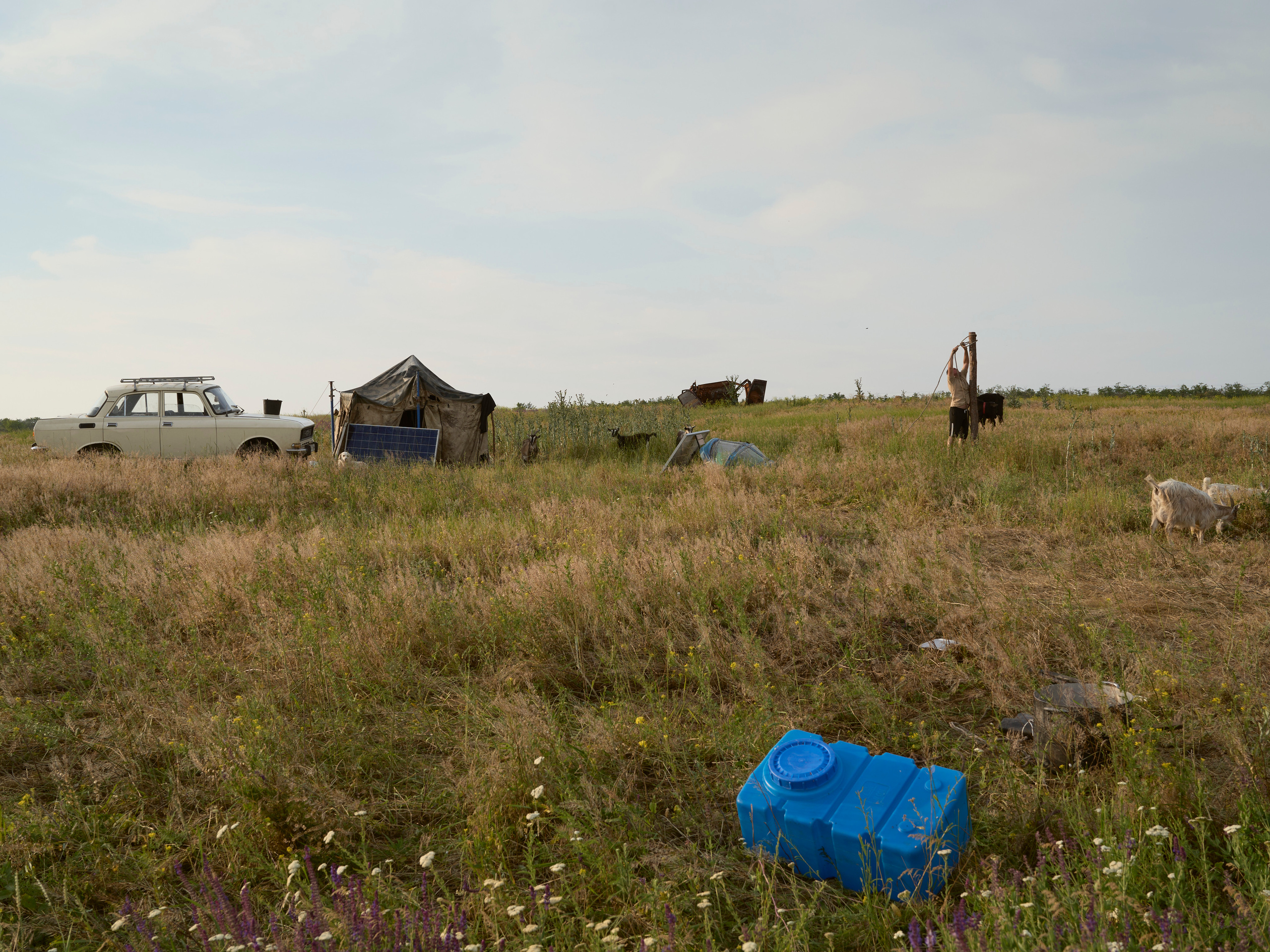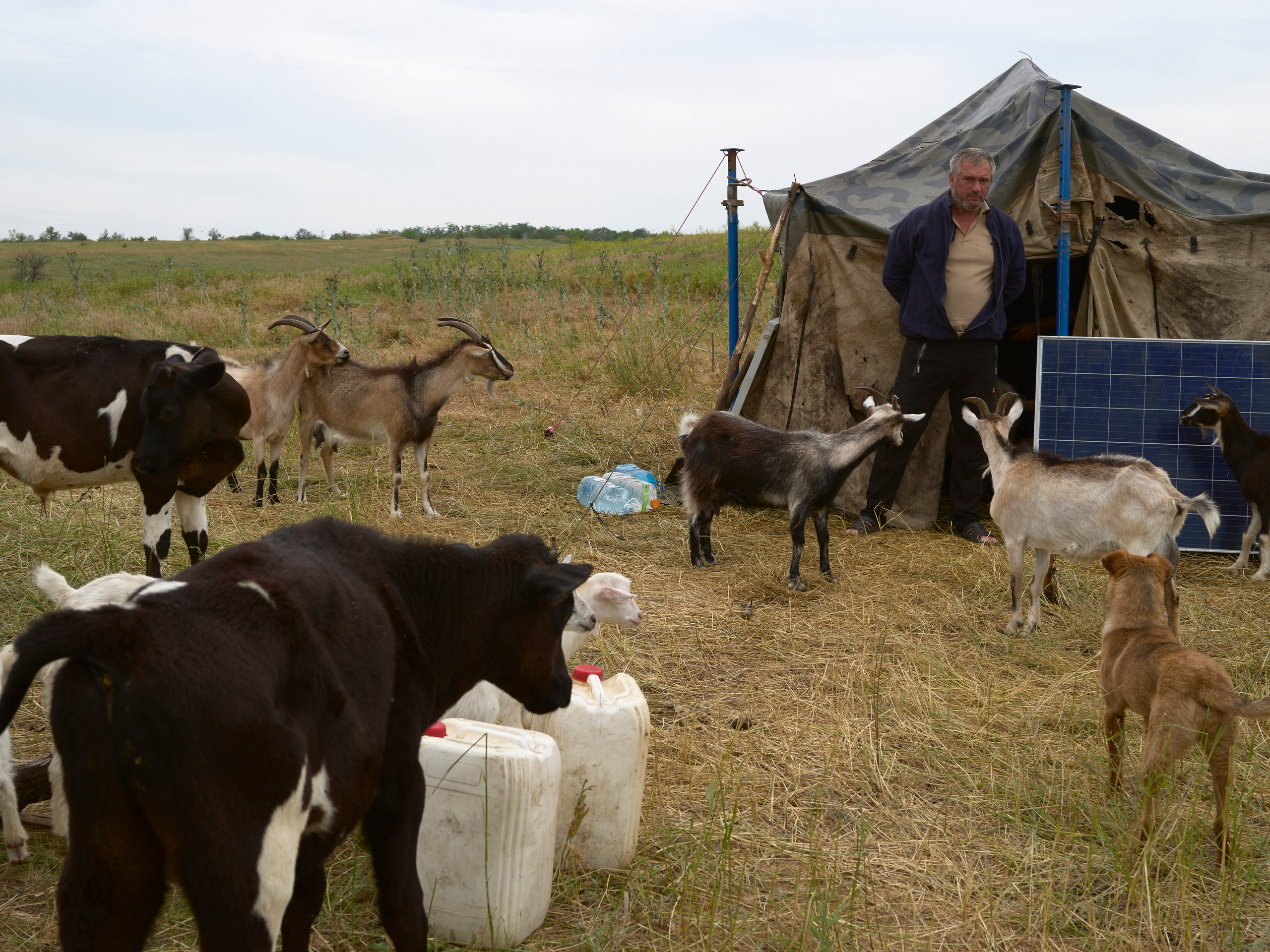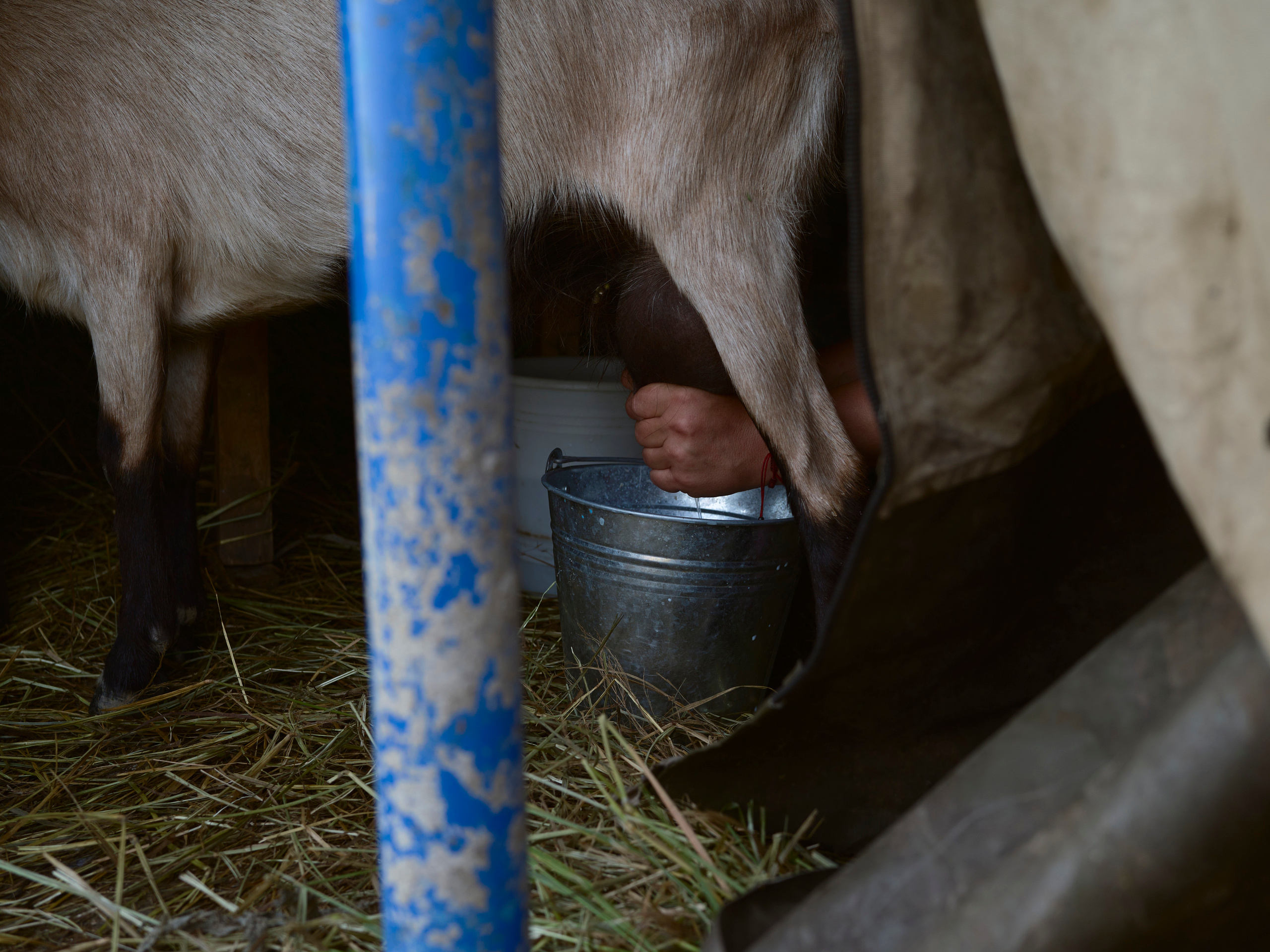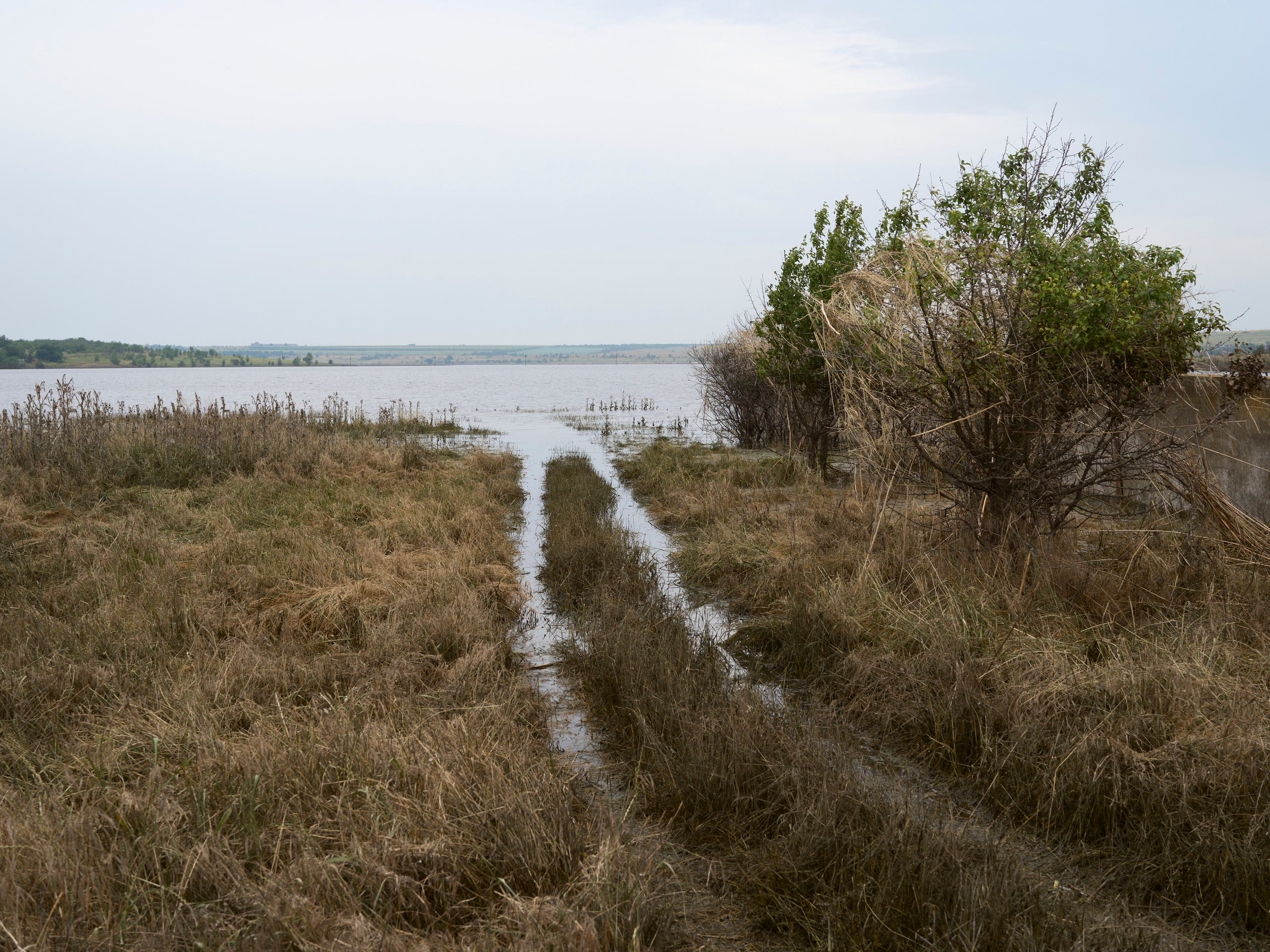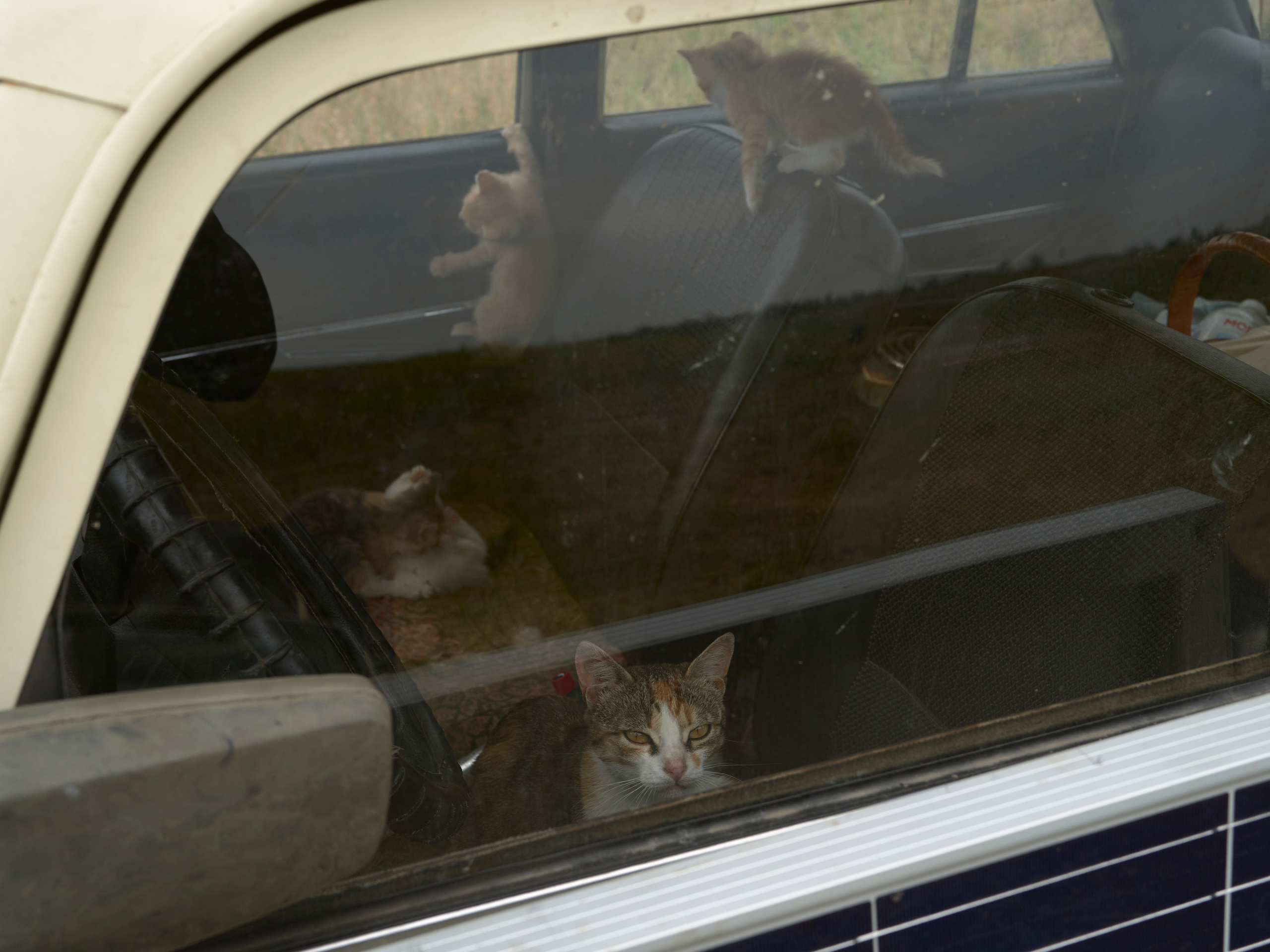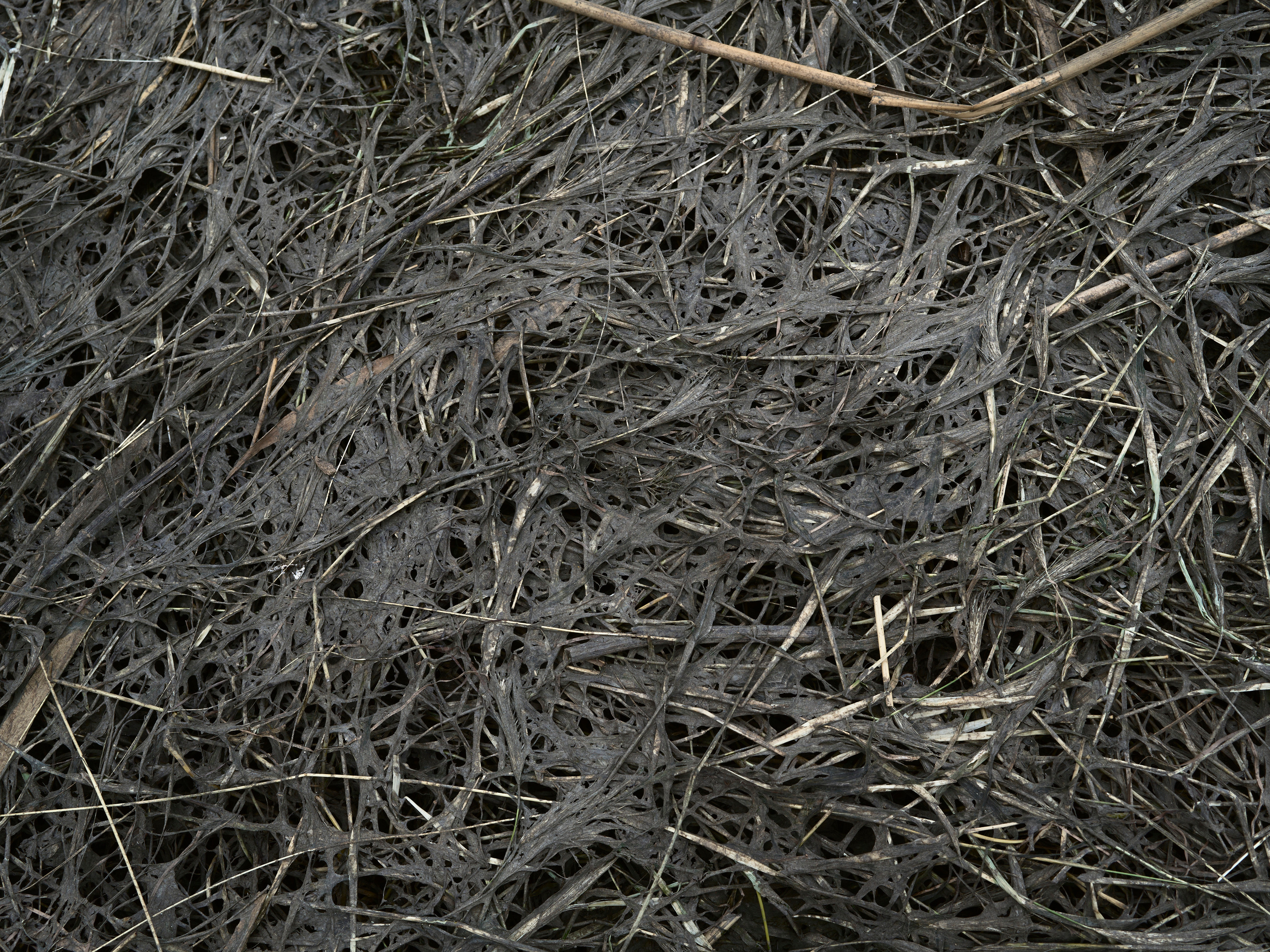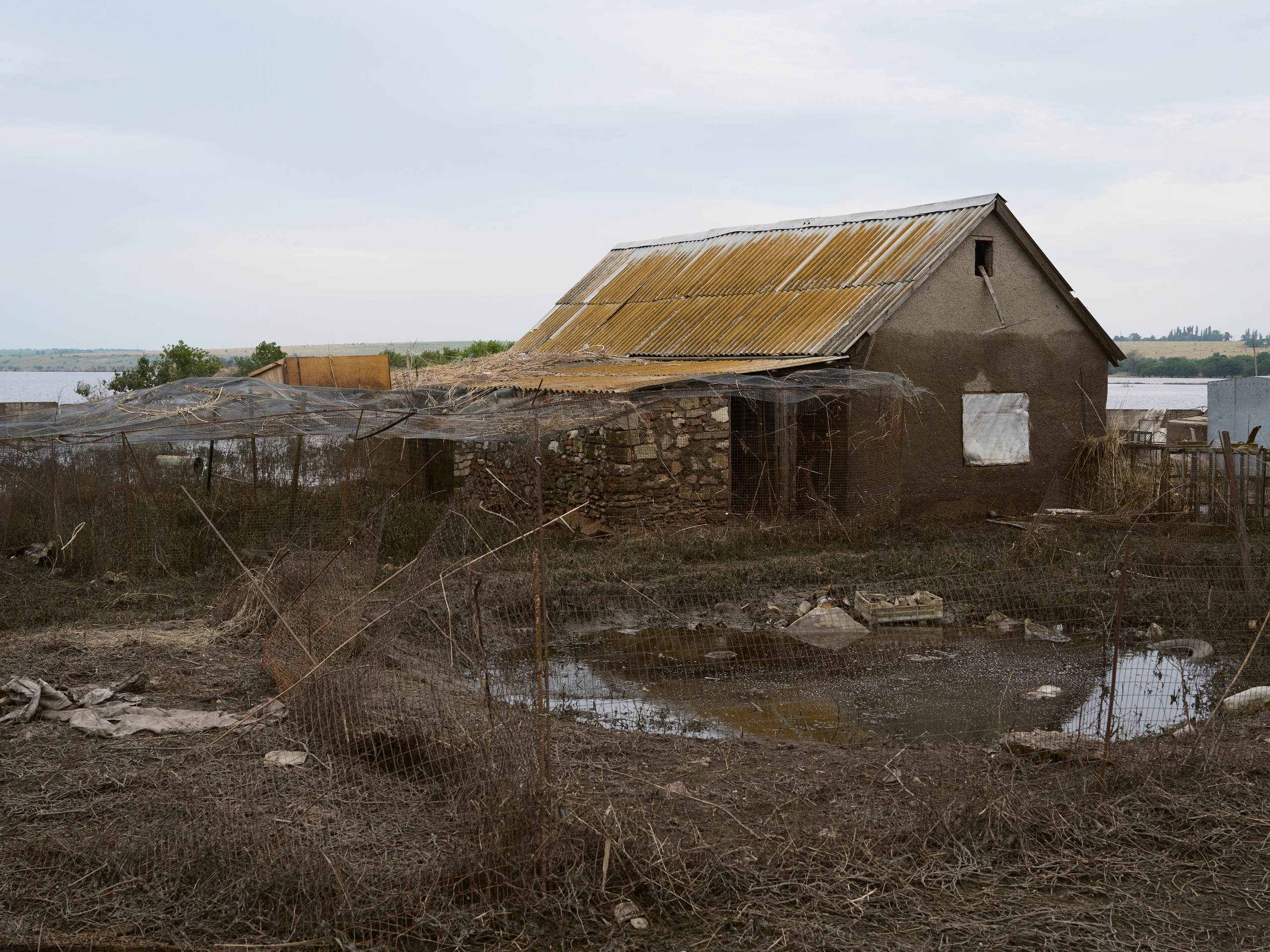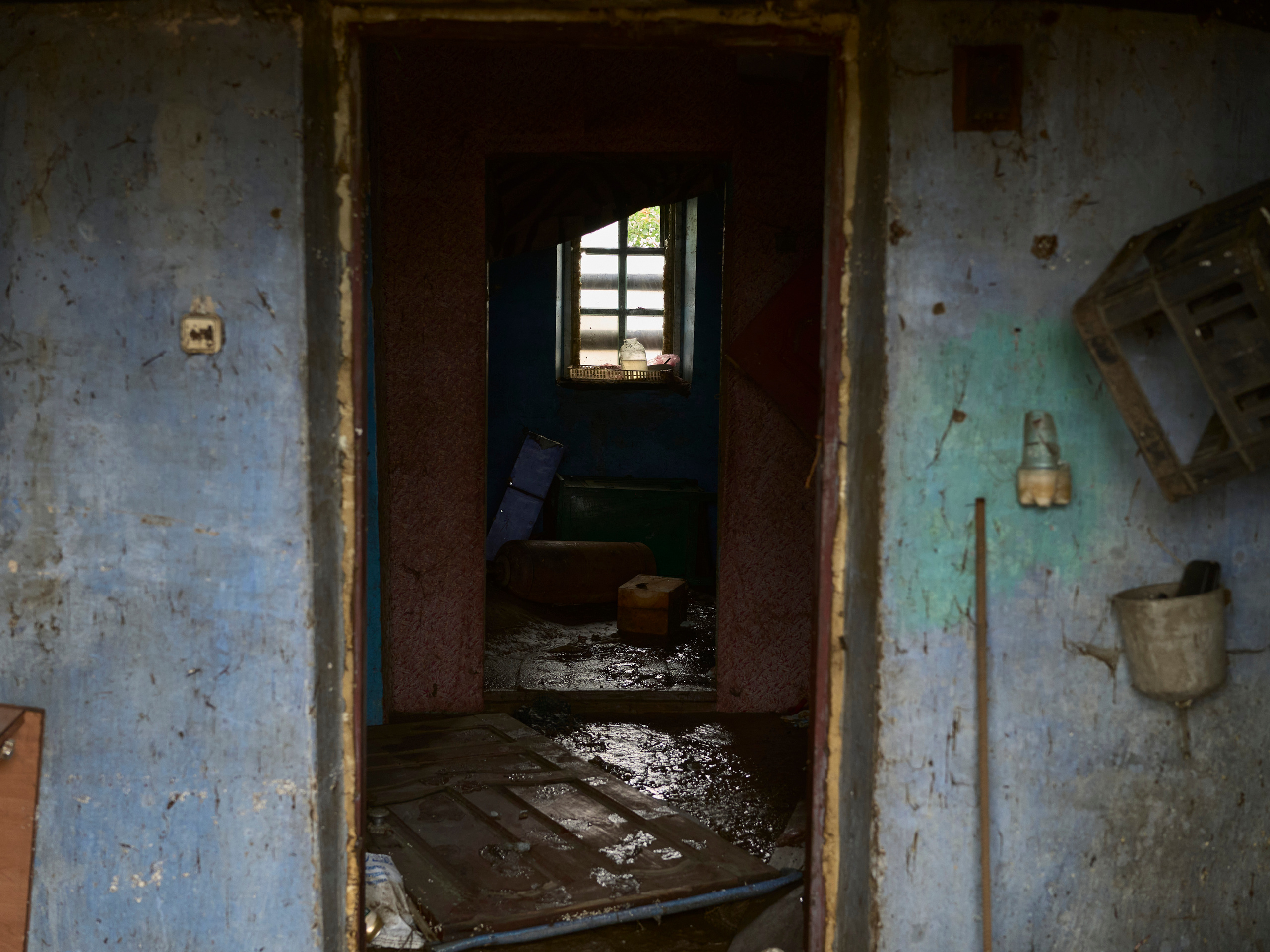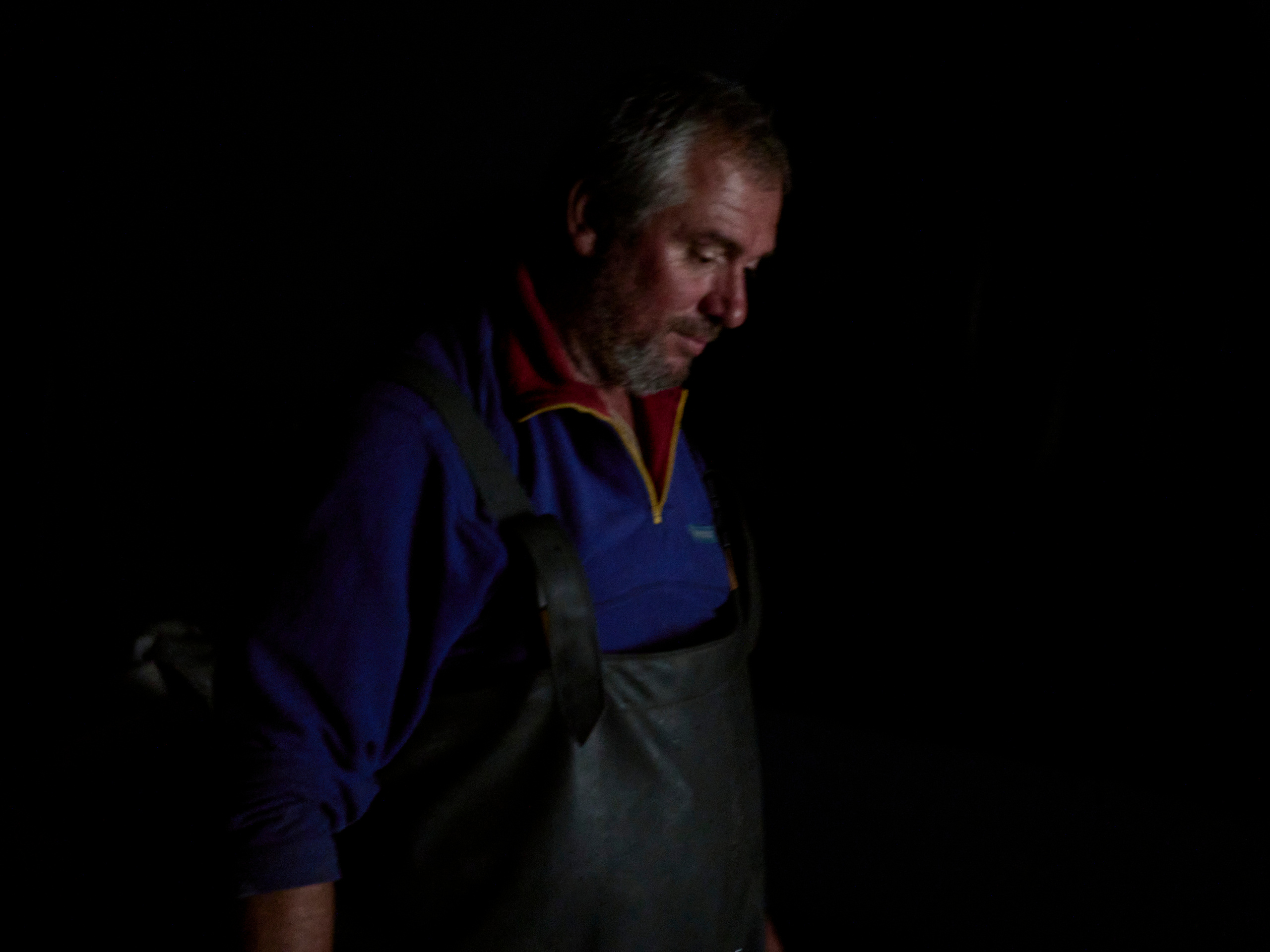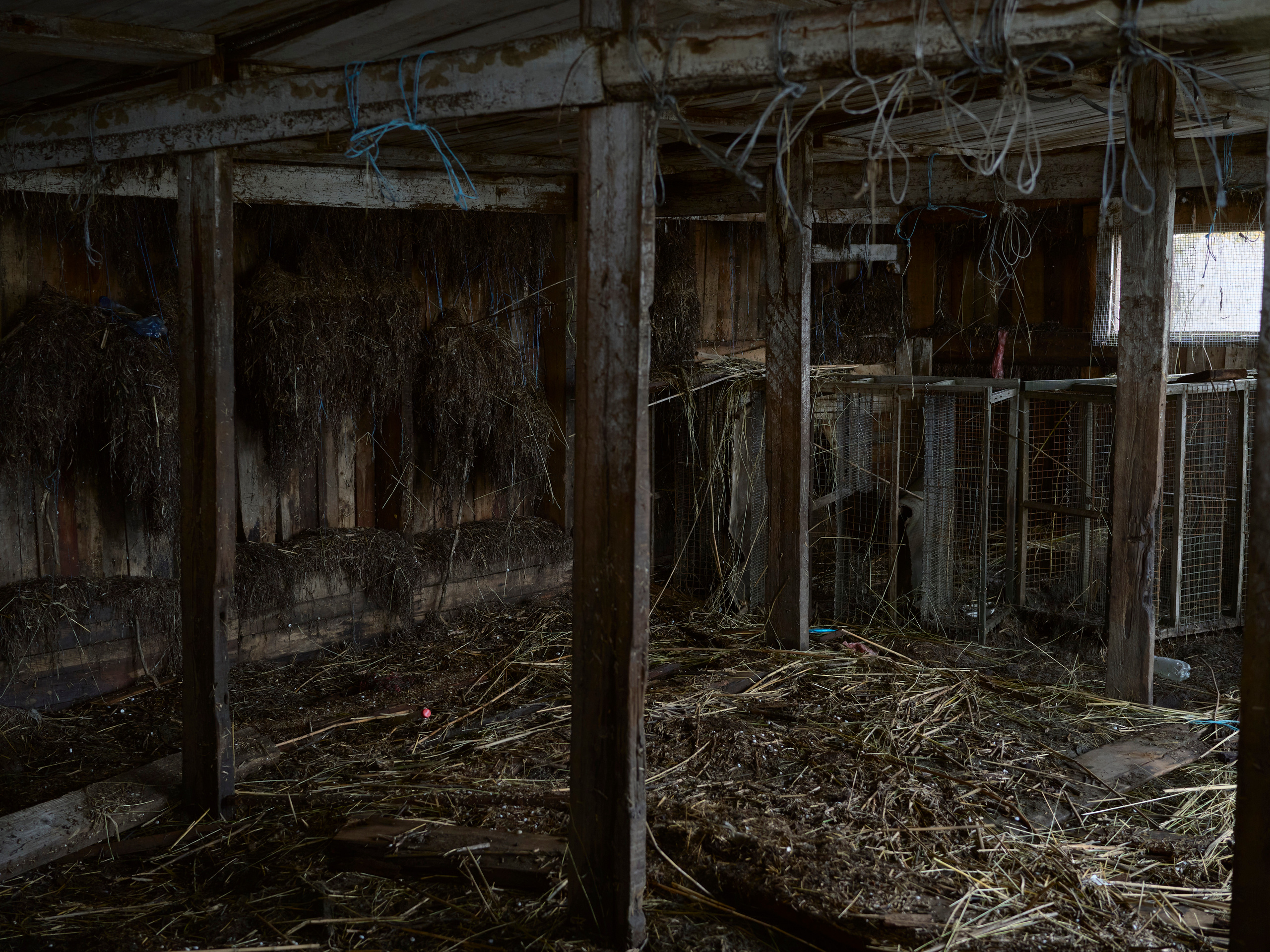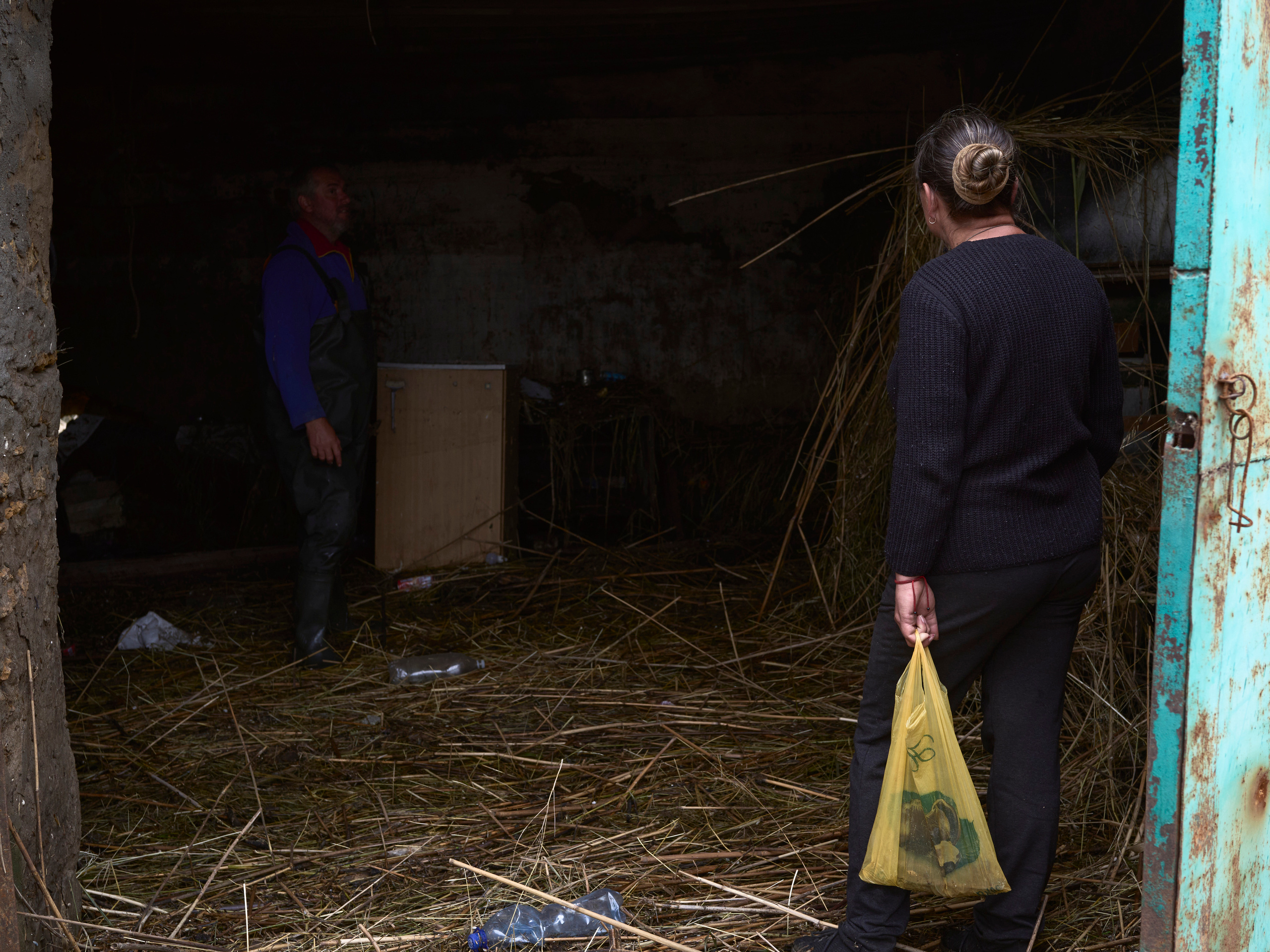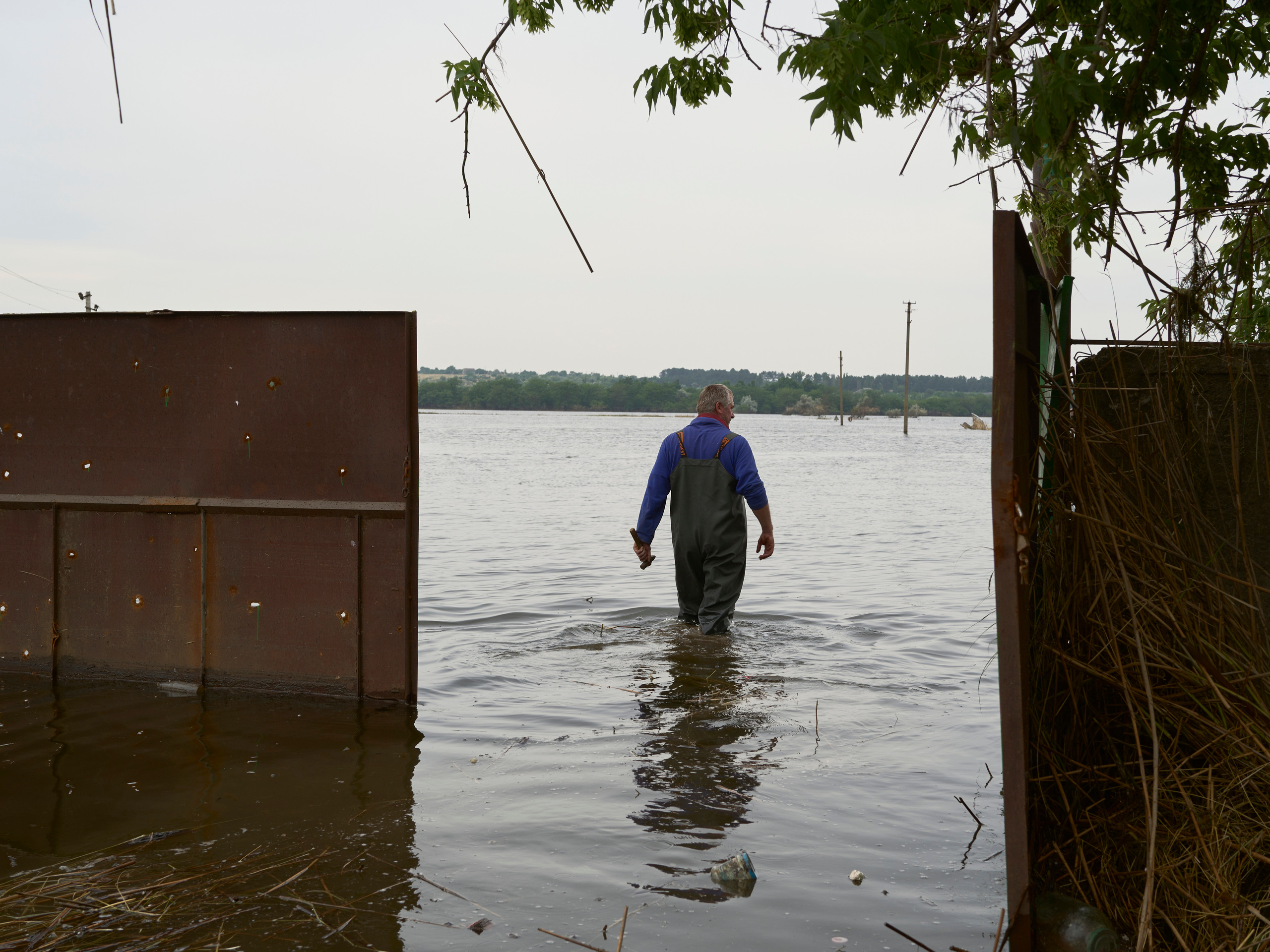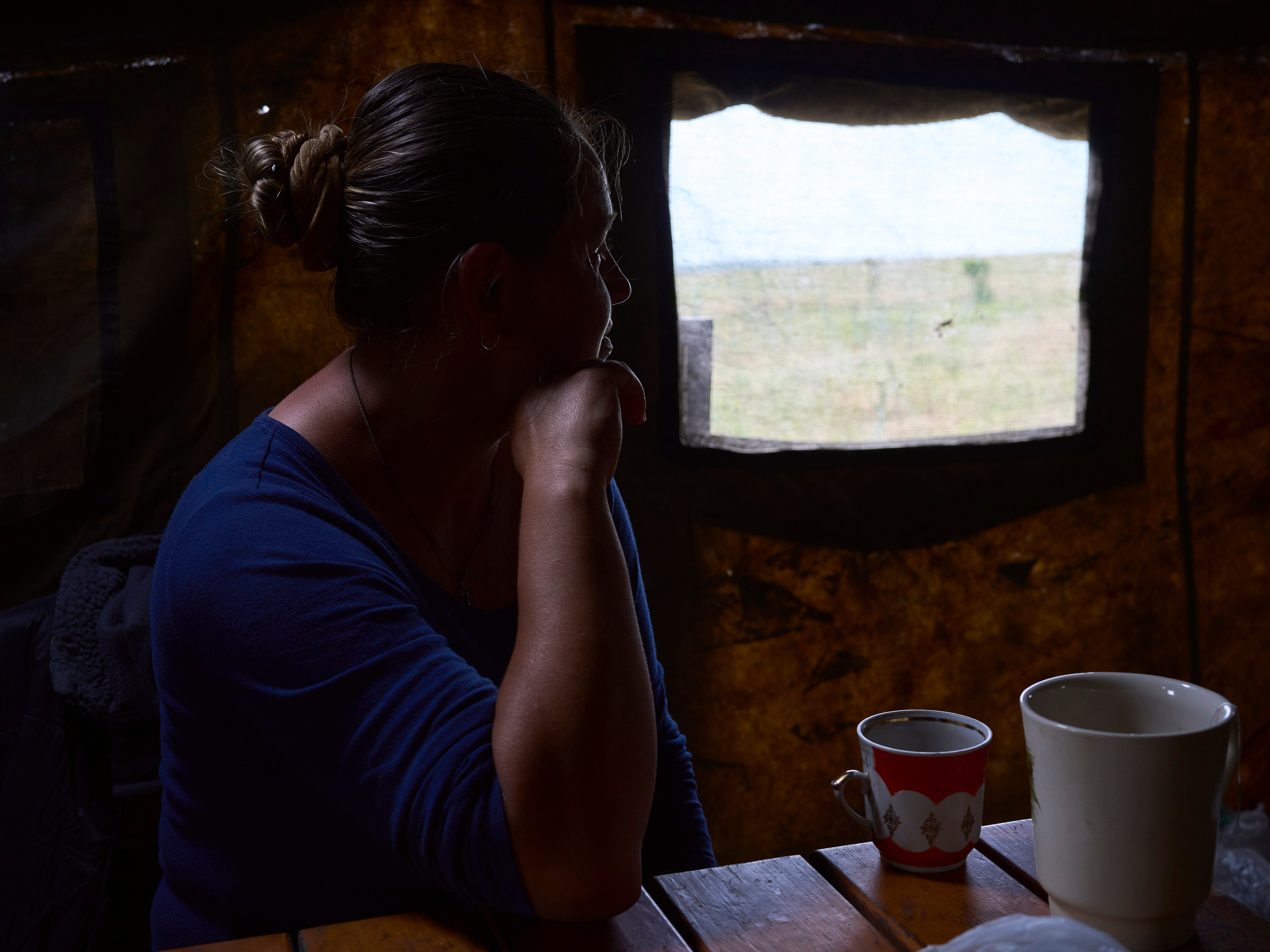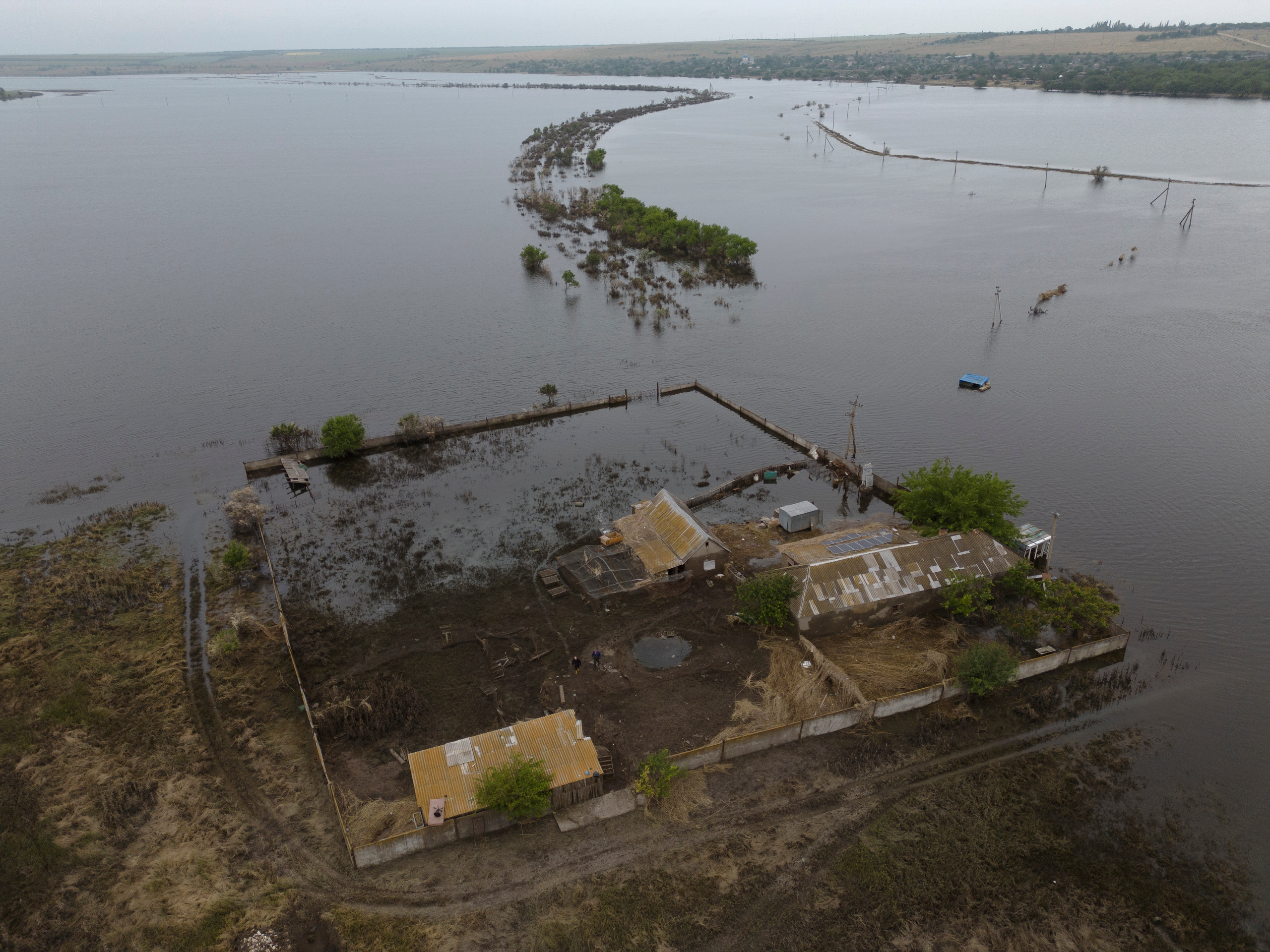Driving across the flooded Ingulets River on my way to Snihurivka, I see a tattered tent, furnished with solar panels and surrounded by goats and bulls, opposite a flooded house.
A woman comes out of it and starts cleaning her makeshift yard. Hena and Natalia, whom her husband affectionately calls “sunshine, ” live here. Their house, which was 150 meters from the river bank, flooded the day after the Kakhovka hydroelectric power station dam was blown up. “We managed to save everyone, but we couldn’t save one goat, ” Gena says calmly, recalling that day. He describes how he and his wife survived the shelling: he says that for the first month and a half of the war, they left the basement only to feed and milk the cattle. He tells how one day Russian soldiers almost shot him dead, thinking he was a spotter. And now this. Judging by the wet marks on the wall, the house was flooded to the roof.
Over the course of a week, the water slowly recedes, leaving behind the acrid smell of silt rotting in the sun and the house disintegrating before our eyes with the wet things that have been accumulated over the years. Today, Hena and Natalia enter the soaked house for the first time. Hena, wearing rubber overalls and carrying a hammer, goes first. Upon entering the yard, he immediately picks up a metal sheet from the ground and begins to nail it in its old place, while Natalia hands him nails from a yellow plastic bag. They calmly examine the property that will never be returned and plan how they will rebuild their old lives.

